#anticommunism
Text

#Communism#Antisocialism#Anticommunism#Economics#Minimum Wage#Living Wage#Eat the Rich#Republican#Democrat#Libertarian#Conservative#Liberal#funny#funny meme#capitalism#socialism#dark humor#anticapitalism
1K notes
·
View notes
Text

“Rok 1920 / Year 1920” Kazimierz Mańkowski 1930
#painting#poland#polska#white eagle#orzeł biały#józef piłsudski#bitwa warszawska#battle of warsaw#anticommunism#kazimierz mańkowski
83 notes
·
View notes
Text
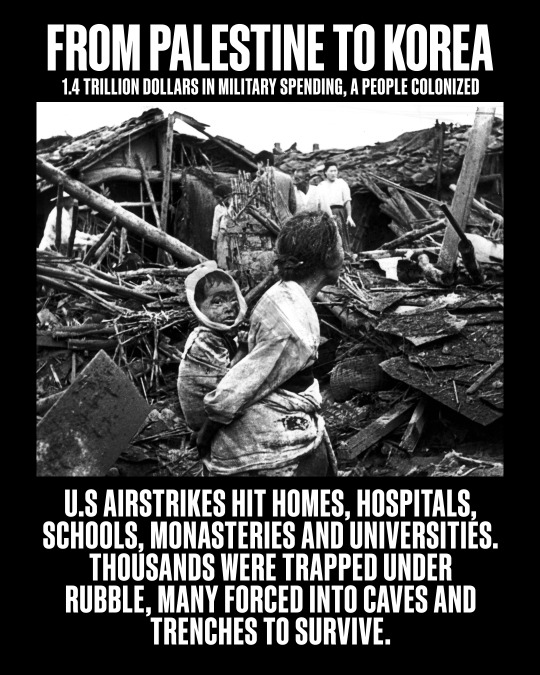

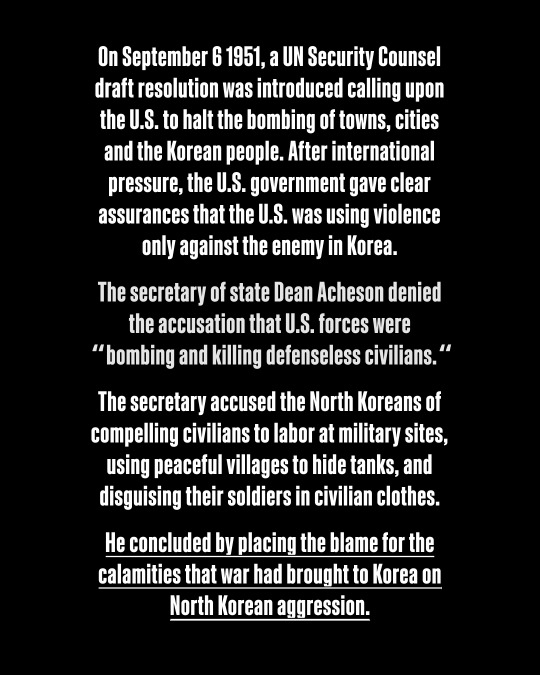
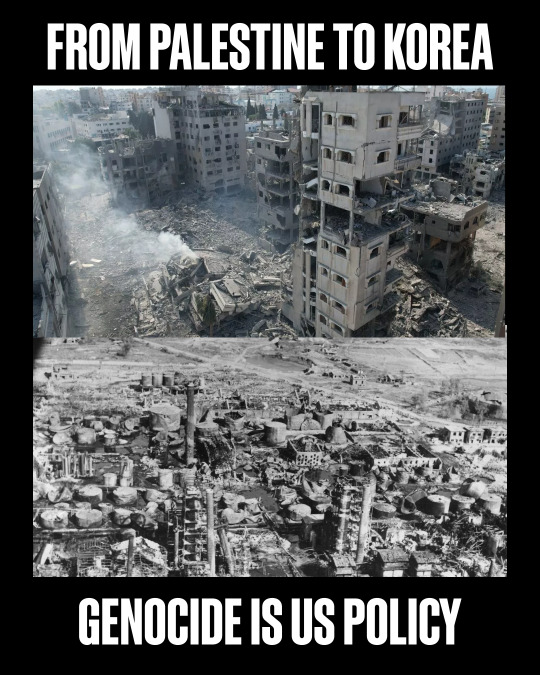

The Korean War, which broke out on June 25, 1950, followed the example set by the United States during World War II of massive bombing campaigns targeting civilians and civilian infrastructure. Nevertheless, throughout the war, American leaders claimed that U.S. airstrikes were being used in a “discriminate manner,” avoiding harm to civilians.
During the war, the American military stretched the term “military target” to include virtually all human-made structures. Under this logic, almost any building could serve a military purpose, even a minor one. Nearly all of the civilian infrastructure on the side of North Korea was deemed a military target and open to attack.
“More than 428,000 bombs were dropped on Pyongyang alone, the number more than that of Pyongyang citizens at that time. The U.S. had completely reduced the whole territory of Korea into ashes by showering bombs of nearly 600,000 tons, 3.7 times greater than those dropped on Japan during the Pacific War, even using napalm bombs prohibited by the international conventions."
On December 15, 1950, under the guise of preventing the “communist imperialist” threat to world peace and the liberties the American people enjoy, President Truman declared a state of emergency and the necessity to increase the military budget given the “recent events” in Korea. About a month later, on January 15, 1951, Truman requested from Congress 71.5 billion dollars (840 billion dollars today, adjusted for inflation) for a new defense budget.
President Truman’s December 15 proclamation stated:
“whereas if the goal of communist imperialism were to be achieved, the people of this country would not longer enjoy the full and rich life they have with God's help built for themselves and their children; they would no longer enjoy the blessings of the freedom of worshiping as they severally choose, the freedom of reading and listening to what they choose, the right of free speech including the right to criticize their Government, the right to choose those who conduct their Government, the right to engage freely in collective bargaining, the right to engage freely in their own business enterprises, and the many other freedoms and rights which are a part of our way of life…”
Despite the U.S. state narrative, the U.S. sought the division of Korea to secure and advance U.S. political and economic interests in Northeast Asia, economically and militarily expanding into new markets and puppet states for cheap labor and resources.
Korea and its proximity to Northeast Asia represents strategic importance to the U.S., and the Middle East occupies just as important, if not a greater position, in U.S. geopolitical interests. Access to cheap oil is essential for the economy of the U.S., and since 1945, the U.S. has made continuous and sustained efforts to secure its grip on the region.
Back in 1948, the same year the United States divided Korea into North and South, the U.S. became the first country to recognize the state of Israel over the land of Palestine. From 1948 until this day, Israel has received more than $280 billion in direct military assistance and economic support, making it the largest recipient of U.S. foreign aid. Israel has U.S. interests in formulating its foreign policy. U.S. and Israeli military presence furthers its economic interest in oil, controlling the trade route of the Suez Canal, and maintaining a monopoly on the extraction of resources from the Middle East.
The U.S. genocidal support for Israel’s crimes is not out of the ordinary. Israel is a carbon copy of what the U.S. did to the indigenous people of Turtle Island, and all the crimes it has since committed against anti-colonial struggles in the global south in the name of “freedom” and "democracy." Israel is a continuation of American and European capitalist expansion post-World War II and its project of European white supremacist dominance over the world.
Their methods and lies for destruction are all the same. The U.S. pays, the media lies, and civilians are gunned down in the name of “peace”.
Today Palestine shows the world the truth and depth of American intervention and imperialism overseas.
#for the two people who engaged with my go posts here#palestine#korea#anticommunism#israel#us war crimes#gaza#imperialism#DPRK#north korea
57 notes
·
View notes
Note
Hi!
I was wondering.. I've been trying to find books to read on "why communism is shit" to have a more solid foundation to rebuke idiot tankies when they start flapping their mouths.. but Google loves to only return shit like "why Lenín had so many good ideas" and utter garbage about why the Russian empire was great.. but I thought there has to be some Ukrainian authors with thoughts on the subject, and that maybe you'd know of a few?
My kneejerk response was to say "read Communist Manifesto" XD
But hey, that's an interesting question.
I think most of the times, at least in the popular discourse, we in Ukraine go the historic route: focusing on the specific crimes USSR commited against its citizens and explaining how it is connected to its economical/political structure. For example, The Red Famine, although flawed, explains how Holodomor was tied to dekulakization and the plan economy, which are the basic bricks on which the soviet experiment was built. I am currently reading The Hungry Steppe and it has been crazy useful in showcasing how the party has been using hauntingly similar tactics in both of our countries.
Based on the annotations, Stanislav Kulchytsky's "Червоний виклик" sounds like exactly the book you're looking for, but unfortunately, it's only avaliable in Ukrainian, which is an issue you'll probably be often running into...
Intuitively I expect that there is a plenty of professional literature that offers critical approach to communism from the point of view of economics/politology/philosophy... But not being interested in either of those topics, I don't feel confident enough giving out recommendations, since I don't know which works are considered the baseline and which highlight marginal thoughts...
As a guess, I'd try looking into books published by ukrainian diaspora communities, especially in Canada. They have been criticising USSR since forever, and typically have published themselves in English. However, due to the Iron Wall, this school of thought had little impact on the development of ukrainian discourse. (I was looking for works of Peter Baley, who seems to have been writing criticism of marxism from a philosophical standpoint, but all I managed to find online is this magazine from 1979)
If we do not limit ourselves to ukrainian authors, I have found recommendations of Marxism and the Leap to the Kingdom of Freedom by Andrzej Walicki
Though I have to say, with marxism being an economical theory you'd expect that hard-logic economical arguments would be the most persuasive, but in my experience tankies don't understand even the basic concepts of economy, so idk why you'd bother trying to play on their ground. I'll give you credit that learning new information and practicing debate are excellent brain food; but ideology is an emotional beast, and there is close to a zero chance deradicalizing somebody through an argument. Hope you have fun tho!
Also leaving an open request for anyone who can suggest good literature on the topic
36 notes
·
View notes
Text
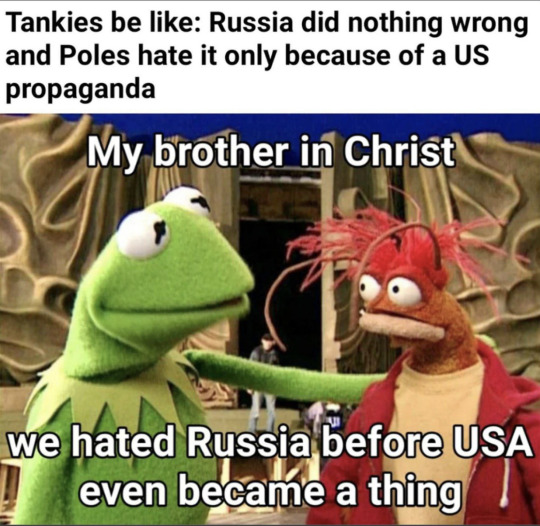
75 notes
·
View notes
Text
Anti-Communism is a Heroic Act
You cannot convince me otherwise
42 notes
·
View notes
Photo

Could they have been stopped earlier?
On 22 February 2014 in Lviv, Ukraine, the secretary of the Communist Party of Ukraine, Rotislav Vasilko was brutally tortured for 12 hours by neo-Nazi "opponents".
The signs of the violence were visible all over his body. Head injuries are varied and severe. He was hospitalized in the hospital in Kiev in a critical situation. Rotislav Vasilko applied for political asylum in another country.
Here it is the letter he wrote at the time:
"Dear comrades, I, Rostislav Stepanovich Vasilko, first secretary of the Lvov Regional Committee of the Communist Party of Ukraine, was beaten to death by banderlogos in Kiev. They persecute my mother, they threaten my children with death. They threaten to kill my wife and me. Help me find political asylum in another country.
On February 22, the Maidanovcy tortured me in Marinsky Park, from 11 a.m. to 11 p.m., they stuck needles under my fingernails, punched and beat me, hit my right lung, broke three ribs, the nasal septum, facial cysts. They broke my skull. I suffered a second degree concussion. I'm covered in bruises. Tomorrow they will inject me with the spinal cord. I have enormous difficulties! They took everything from me, stole my documents, money, the gold chain and the cross”. - Rostislav Vasilko.
41 notes
·
View notes
Text
I've put up a few patches on Bandcamp as I feel this guy's lectures, and books are really valuable looks at historical and contemporary politics.
a short clip of one of his interviews:
youtube
#Diy#Patch#Punkpatch#Anticommunist#anticommunism#KGBDefector#Ideological warfare#Phycological warfare#5th generation warfare#Antimarx#AntiLenin#Demoralization#Gulag#CCCP#USSR#Youtube
6 notes
·
View notes
Text
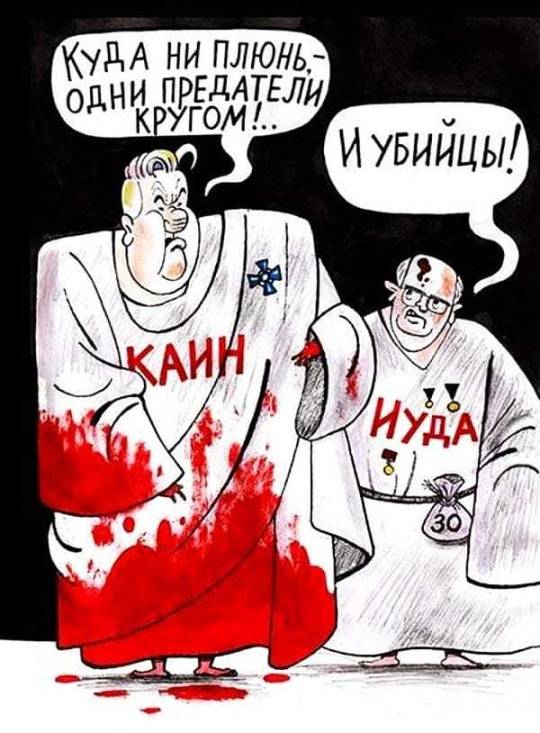
Judas and Cain meet again
Via Communist Dawn
#Mikhail Gorbachev#Boris Yeltsin#counterrevolution#USSR#Soviet Union#capitalism#anticommunism#imperialism
18 notes
·
View notes
Text
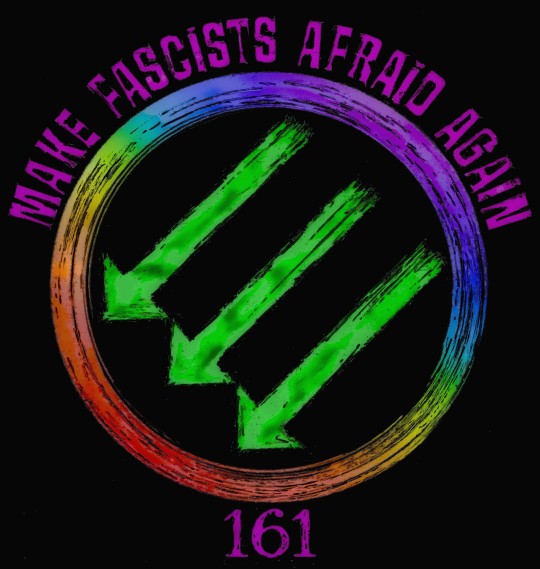
4 notes
·
View notes
Text

#Communism#Antisocialism#Anticommunism#Economics#Minimum Wage#Living Wage#Eat the Rich#Republican#Democrat#Libertarian#Conservative#Liberal#funny#funny meme#capitalism#socialism#politics#anticapitalism
496 notes
·
View notes
Link
For those wishing to paint 20th-century communism as an unmitigated evil, ongoing ethnographic and survey research in eastern Europe contradicts any simple narrative. Even as early as 1992, the Croatian journalist Slavenka Drakulić ‘worried about what would happen to all the good things that we did have under communism – the medical care, the year’s paid maternity leave, free abortion’. As governments dismantled social safety nets and poverty spread throughout the region, ordinary citizens grew increasingly less critical of their state socialist pasts.
A 2009 poll in eight east European countries asked if the economic situation for ordinary people was ‘better, worse or about the same as it was under communism’. The results stunned observers: 72 per cent of Hungarians, and 62 per cent of both Ukrainians and Bulgarians believed that most people were worse off after 1989. In no country did more than 47 per cent of those surveyed agree that their lives improved after the advent of free markets. Subsequent polls and qualitative research across Russia and eastern Europe confirm the persistence of these sentiments as popular discontent with the failed promises of free-market prosperity has grown, especially among older people.
In response, east European conservative and Right-wing governments have created museums, memorials and days of commemoration to honour the victims of communism. In 2008, conservative politicians signed the Prague Declaration on European Conscience and Communism to increase educational efforts about the crimes of communism, followed by the 2011 creation of the Platform of European Memory and Conscience, a consortium of organisations striving to promote their view of the 20th century in European history textbooks: a view that equates communism with Nazism, as one of two totalitarianisms.
In Poland and Ukraine, democratic governments have banned communist symbols, slogans and songs, and the Ukrainian government forced name changes on villages and towns with nomenclature that sounded too communist. In the most extreme case, the Ukrainians have legislated an official history about a recent past through which many present-day citizens have lived. If a journalist tries to discuss any positive aspects of life between 1917 and 1991, the law allows the government to shut down the newspaper, magazine or blog, and carries a potential prison sentence of five to 10 years. Free-market capitalism has not brought freedom of the press.
172 notes
·
View notes
Photo
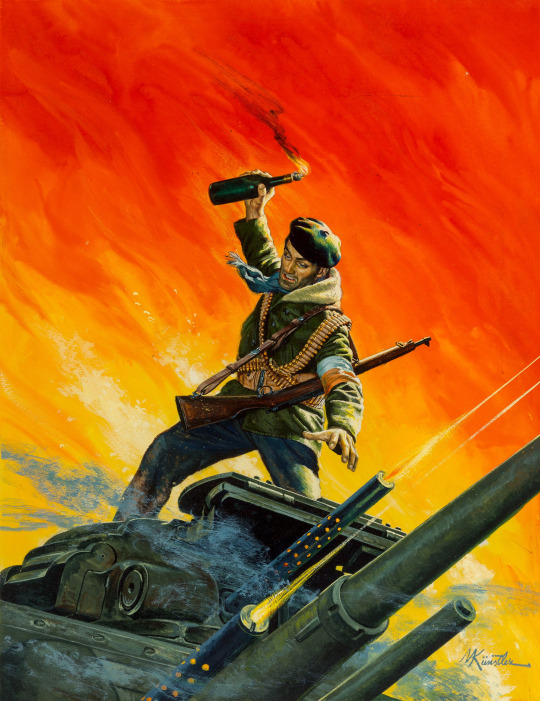
“Molotov Cocktail” Mort Künstler 1957
Cover art for the June issue of Men’s Pictorial magazine illustrating the article “We Fought Their Tanks Barehanded! On-the-spot Hungarian battle photos“.
#painting#pulp art#hungarian uprising#hungary#magyarország#anticommunism#mort kunstler#men's pictorial
99 notes
·
View notes
Text
Communism is trash, socialism is better.
5 notes
·
View notes
Text
Tankies: everyone the ussr has ever executed have been fascists!
The "fascists" in question:


Source: Serhii Plokhy - The Gates of Europe
68 notes
·
View notes
Photo
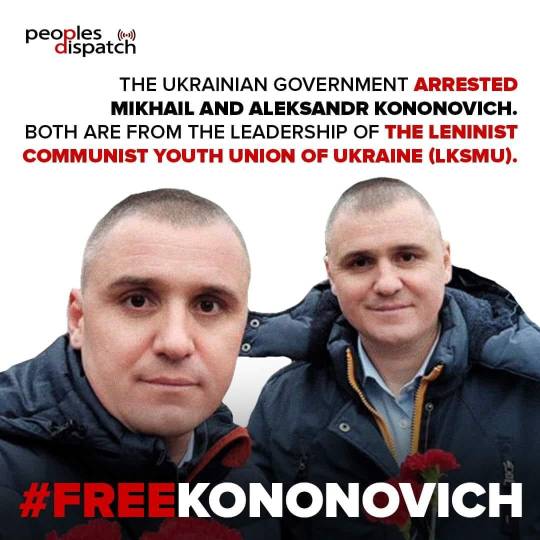
#free kononovich#kononovich#ukraine#communism#comunists#Free Ukraine From Nazis#denazification#Fuck Azov Nazis#Fuck Azov#FCKNZS#anticommunism#fight anticommunism#end stage capitalism#fuck capitalism#free donbass people#HANDS OFF RUSSIA#russia#communist party#internationalism#Ukraine is a terrorist state
2 notes
·
View notes